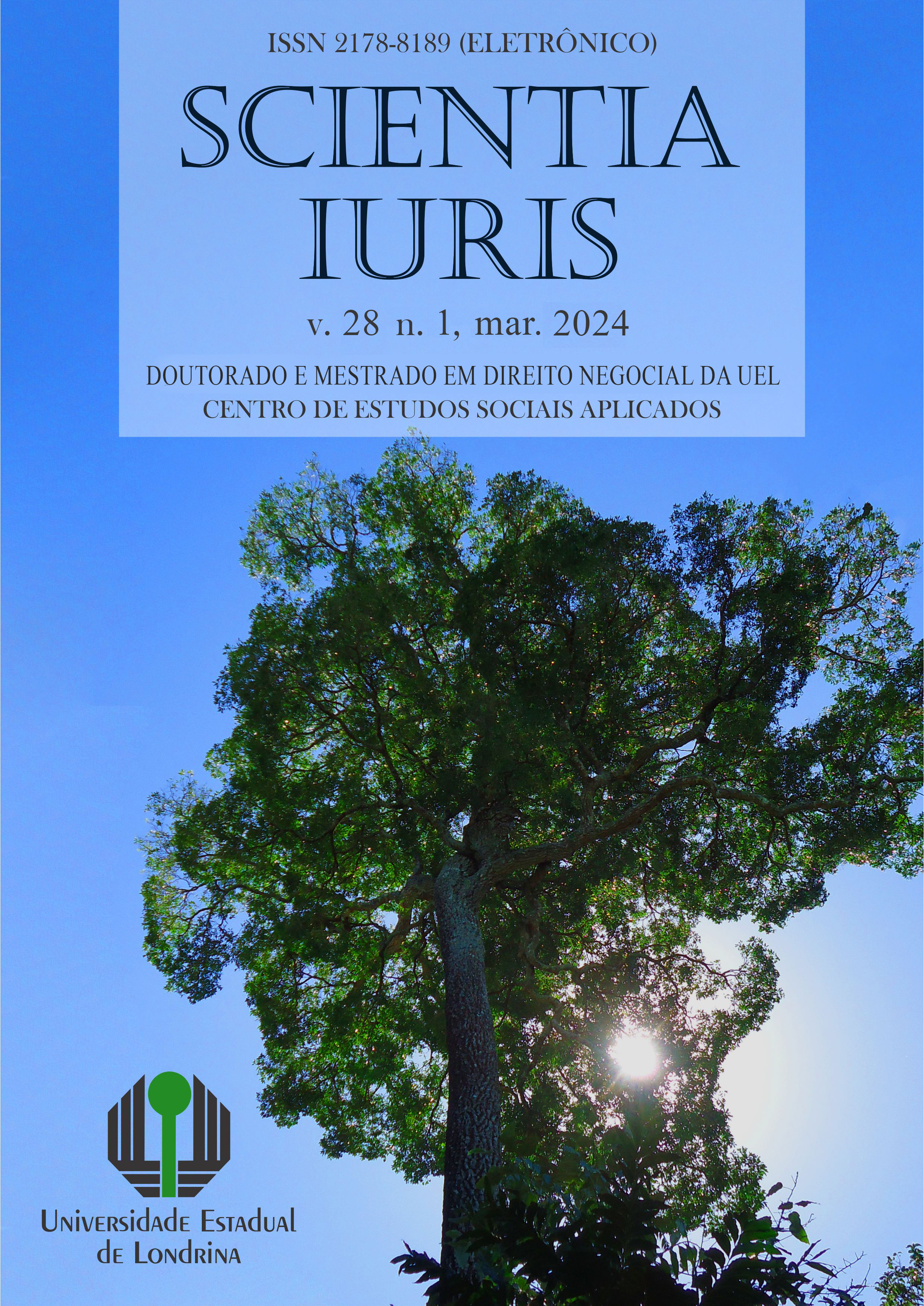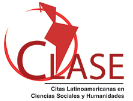O compliance à luz da inclusão social da pessoa com deficiência
DOI:
https://doi.org/10.5433/2178-8189.2024v28n1p177-194Palavras-chave:
Compliance, Inclusão Social, Pessoa com DeficiênciaResumo
Este artigo trata-se de pesquisa realizada para discorrer, através do método dedutivo, sobre o papel do compliance em prol da inclusão social da pessoa com deficiência por meio do trabalho. Os programas de integridade surgiram inicialmente para coibir e evitar atos de corrupção nos ambientes empresariais com vistas de conter os danos que poderiam vir a ser causados. Com o seu aprimoramento, percebeu-se a sua utilidade para outros aspectos, tais como a melhoria da imagem perante a sociedade e na busca por um ambiente laboral hígido e sustentável. As pessoas com deficiência viveram segregadas por séculos, necessitando que o Estado tutele seus direitos e crie e fomente mecanismos de inserção. Com base nisso, tem-se que o compliance poderá ser importante ferramenta para cumprir as normas de acessibilidade no ambiente empresarial e as demais políticas públicas, além de programar outros instrumentos em prol da inclusão social atendendo os Princípios da Isonomia e da Dignidade da Pessoa Humana.
Downloads
Referências
ARAUJO, Elizabeth Alice Barbosa Silva de; FERRAZ, Fernando Basto. O conceito de pessoa com deficiência e seu impacto nas ações afirmativas brasileiras no mercado de trabalho. In: ENCONTRO NACIONAL DO CONPEDI, 19, 2010, Fortaleza. Anais... Fortaleza: Conselho Nacional de Pesquisa e Pós-Graduação em Direito, p.8841-8859, 2010.
ARAUJO, Luiz Alberto David; COSTA FILHO, Waldir Macieira da. O Estatuto da Pessoa com Deficiência-EPCD (Lei 13.146, de 06.07. 2015): algumas novidades. Revista dos Tribunais, v. 962, n. 2015, p. 65-80, 2015.
ASSI, Marcos. Compliance: como implementar. São Paulo: Trevisan Editora, 2018.
AZEVEDO, Mateus Miranda de; CARDOSO, Antonio Almeida; DARTE, Jairo Gonçalves; FEDERICO, Bianca Ellen; LIMA, Marco Antonio Ferreira. O compliance e a gestão de riscos nos processos organizacionais. Revista de Pós-Graduação Multidisciplinar, v. 1, n. 1, p. 179-196, 2017.
BUBLITZ, Michelle Dias. Conceito de pessoa com deficiência: comentário à ADPF 182 do STF. Revista da AJURIS, v. 39, n. 127, p. 353-369, 2012.
BORGES, Aline Vieira; LONGEN, Willians Cassiano. Inclusão de pessoas com deficiência no mercado de trabalho e as perspectivas de acessibilidade. Brazilian Journal of Health Review, v. 2, n. 6, p. 5520-5531, 2019.
CARVALHO, André Castro. Manual de compliance. Rio de Janeiro: Forense, 2021.
FARIAS, Cristiano Chaves de; CUNHA, Rogério Sanches; PINTO, Ronaldo Batista. Estatuto da pessoa com deficiência comentado artigo por artigo. Salvador: Editora JusPodivm, 2016.
FONSECA, Ricardo Tadeu Marques. O novo conceito constitucional de pessoa com deficiência: um ato de coragem. Revista do TRT da 2ª Região, São Paulo, n. 10, p. 45-54, 2012.
JORGE NETO, Francisco Ferreira; CAVALCANTE, Jouberto de Quadros Pessoa. Direito do trabalho. São Paulo: Atlas, 2019.
LEITE, Flávia Piva Almeida; RIBEIRO, Lauro Luiz Gomes; COSTA FILHO, Waldir Macieira da. Comentários ao Estatuto da Pessoa com Deficiência - Lei n. 13.146/2015. São Paulo: Saraiva Educação, 2019.
MAIA, Maurício. Novo conceito de pessoa com deficiência e proibição do retrocesso. Conteúdo Jurídico, Brasília-DF, 11 fev. 2014. Disponível <http://www.pcd.mppr.mp.br/arquivos/File/novo_conceito_de_pessoa_com_deficiencia_e_proibicao_do_retrocesso.pdf>. Acesso em 31 jan. 22.
NEVES, Edmo Colnaghi. Compliance empresarial: o tom da liderança: estrutura e benefícios do programa. São Paulo: Trevisan Editora, 2018.
ROSSIGNOLI, Marisa; FUZETTO, Murilo Muniz. O teletrabalho para a pessoa com deficiência como dificultador da inclusão social. REI-Revista Estudos Institucionais, v. 7, n. 2, p. 606-628, 2021.
SILVA, Daniel Cavalcante; COVAC, José Roberto. Compliance como boa praÌtica de gestão de ensino superior privado. São Paulo: Saraiva, 2015.
Downloads
Publicado
Como Citar
Edição
Seção
Licença
Copyright (c) 2024 Murilo Muniz Fuzetto, Elias Marques de Medeiros Neto

Este trabalho está licenciado sob uma licença Creative Commons Attribution 4.0 International License.
Autores que publicam nesta revista concordam com os seguintes termos:
a) Os(as) autores(as) mantêm os direitos autorais e concedem à revista o direito de primeira publicação, sendo o trabalho simultaneamente licenciado sob a Creative Commons Atribuição 4.0 Internacional, permitido o compartilhamento do trabalho com reconhecimento da autoria do trabalho e publicação inicial nesta revista.
b) Os(as) autores(as) têm autorização para assumir contratos adicionais separadamente, para distribuição não-exclusiva da versão do trabalho publicada nesta revista (ex.: publicar em repositório institucional ou como capítulo de livro), com reconhecimento de autoria e publicação inicial nesta revista.
c) Autores têm permissão e são estimulados a publicar e distribuir seu trabalho em linha (ex.: em repositórios institucionais ou na sua página pessoal) após o processo editorial, já que isso pode gerar alterações produtivas, bem como aumentar o impacto e a citação do trabalho publicado (Veja O Efeito do Acesso Livre).
d) Os(as) autores(as) dos trabalhos aprovados autorizam a revista a, após a publicação, ceder seu conteúdo para reprodução em indexadores de conteúdo, bibliotecas virtuais e similares.
e) Os(as) autores(as) assumem que os textos submetidos à publicação são de sua criação original, responsabilizando-se inteiramente por seu conteúdo em caso de eventual impugnação por parte de terceiros.
A revista se reserva o direito de efetuar, nos originais, alterações de ordem normativa, ortográfica e gramatical, com vistas a manter o padrão culto da língua e a credibilidade do veículo. Respeitará, no entanto, o estilo de escrever dos autores. Alterações, correções ou sugestões de ordem conceitual serão encaminhadas aos autores, quando necessário. Nesses casos, os artigos, depois de adequados, deverão ser submetidos a nova apreciação. As provas finais não serão encaminhadas aos autores. Os trabalhos publicados passam a ser propriedade da revista, ficando sua reimpressão total ou parcial sujeita a autorização expressa da revista. Em todas as citações posteriores, deverá ser consignada a fonte original de publicação, no caso a Scientia Iuris. As opiniões emitidas pelos autores dos artigos são de sua exclusiva responsabilidade.



















